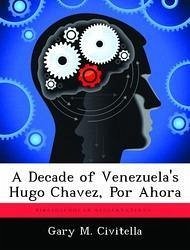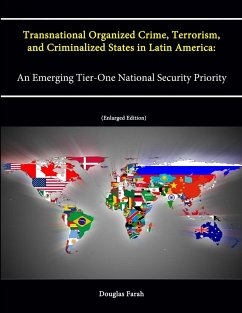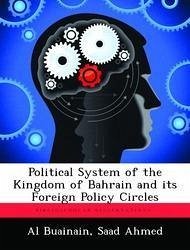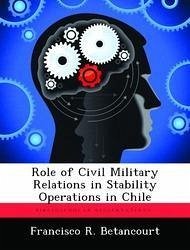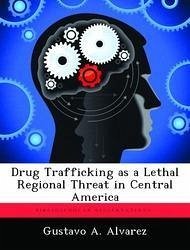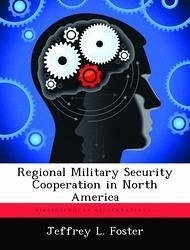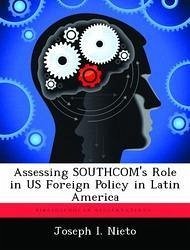
Assessing SOUTHCOM's Role in US Foreign Policy in Latin America
Versandkostenfrei!
Versandfertig in über 4 Wochen
52,99 €
inkl. MwSt.
Weitere Ausgaben:

PAYBACK Punkte
26 °P sammeln!
The last decade has experienced an increased role of the military in shaping and implementing US foreign policy in Latin America as the focus shifted seamlessly from fighting communism to combating drug trafficking and now prosecuting the war on terror. This paper argues that the armed forces dominate relations between the US and Latin American nations because the Pentagon has the largest official presence in the western hemisphere; hence displacing foreign affairs organizations traditionally chartered to conduct diplomacy, perform development assistance and foster understanding. However, this...
The last decade has experienced an increased role of the military in shaping and implementing US foreign policy in Latin America as the focus shifted seamlessly from fighting communism to combating drug trafficking and now prosecuting the war on terror. This paper argues that the armed forces dominate relations between the US and Latin American nations because the Pentagon has the largest official presence in the western hemisphere; hence displacing foreign affairs organizations traditionally chartered to conduct diplomacy, perform development assistance and foster understanding. However, this bleeding of civilian responsibilities to the military weakens the Secretary of State's ability to successfully conduct US relations with foreign countries and undermines the Secretary of Defense's focus on war fighting, as military solutions gain prominence over diplomacy. It cautions American leaders to understand the implications of empowering the armed forces of nascent democracies and the consequences of encouraging law enforcement roles for the military to address public order challenges. The analysis reveals the need for a more balanced foreign policy toward Latin America and the Caribbean, which demands the enhancement of civilian agencies and programs by boosting their funding to bring those levels of engagement on par with and complement humanitarian assistance, training and other foreign aid already provided by the military. Unity of effort between the State Department and the Pentagon will strengthen interagency solutions by combining the diplomatic, information, military and economic instruments of national power. In the long run, an integrated approach that addresses the symptoms as well as the causes of the many problems that afflict our neighbors to the south should not only benefit Latin American and Caribbean nations; but also improve US security and mutual regional interests.




